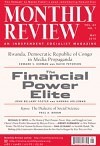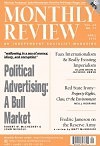2010
“Ultimately,” said Miguel Rivera, a soft-spoken man in his late twenties, “we are a family that has dedicated ourselves to helping the people with their needs and defending their rights. But in the process of denouncing the consequences of mining especially, I think there are people that will be your enemies.”…The Canadian-owned Pacific Rim Mining Company has attempted to exploit a gold mine at El Dorado for the better part of a decade, and has been repeatedly thwarted in its efforts….Now, apparently, the company’s local allies have taken a more violent approach to removing that opposition. | more…
Ariel Salleh, ed., Eco-Sufficiency and Global Justice: Women Write Political Ecology (New York: Pluto Press, 2009), 324 pages, $34.00, paperback.
In 2001, Wilma Dunaway wrote that the “tentacles of the world-system are entwined around the bodies of women.” Yet her literary analysis revealed a profound silence about the role of women in reproductive labor, subsistence households, and commodity chain analysis. Dunaway characterized this omission as, “the greatest intellectual and political blunder” in her field.…Nearly ten years later, Ariel Salleh has answered this unspoken call with the resounding voices of seventeen feminist scholars who address transdisciplinary issues of global political ecology. | more…
John Gerassi, Talking with Sartre: Conversations and Debates, edited and translated by John Gerassi (New Haven, CT: Yale University Press, 2009), 336 pages, $20.00, paperback.
“I want to know, Sartre, how a bourgeois like you—and you, Sartre, no matter how much you hate the bourgeoisie are still a bourgeois through and through—became a revolutionary.” In this way, John Gerassi once informed an audience of Jean-Paul Sartre scholars and aficionados about what to expect from the 2,000-plus pages of edited transcripts of his conversations with Sartre, taped from 1970 to 1974 and recently deposited in the Yale University library. | more…

The more serious the problem of climate change becomes, the more revolutionary the change needed to address it—the more we can expect powerful economic and social interests to deny the seriousness of the problem: playing up scientific uncertainties that always exist, and casting doubt on climate science itself. The object of such a response is to manipulate public opinion so as to sow confusion and arrest any attempt to alter business as usual. | more…
Has the power of financial interests in U.S. society increased? Has Wall Street’s growing clout affected the U.S. state itself? How is this connected to the present crisis? We will argue that the financialization of U.S. capitalism over the last four decades has been accompanied by a dramatic and probably long-lasting shift in the location of the capitalist class, a growing proportion of which now derives its wealth from finance as opposed to production. This growing dominance of finance can be seen today in the inner corridors of state power. | more…
Elsewhere we have written that the breakup of Yugoslavia “may have been the most misrepresented series of major events over the past twenty years.” But the far bloodier and more destructive invasions, insurgencies, and civil wars that have ravaged several countries in the Great Lakes region of Central Africa over the same years may have been subjected to even greater misrepresentation. To a remarkable degree, all major sectors of the Western establishment swallowed a propaganda line on Rwanda that turned perpetrator and victim upside-down. | more…
Pronounced preoccupation with interpretation of historical experience, with basic problems of social dynamics, and with epistemological foundations of social science is itself an important characteristic of the revolutionary convulsions that mark the end and the beginning of epochs in human history. Thus also in our days the feeling of philosophical unrest has penetrated the ivory towers of conventional economics, and the rationale of traditional economic theorizing has become doubtful even to the most complacent practitioners of the established orthodoxy. Representing essentially a series of more or less successful attempts at the comprehension of the working principles of capitalism, customary economic thought stands completely disarmed when confronted with the decomposition of capitalism itself, when what matters is no longer the movements and the behavior of the passengers (and the conductors) on the train but the direction and the speed of the train itself. | more…
Bernd Greiner, War Without Fronts: The USA in Vietnam, translated by Anne Wyburd and Victoria Fenn (New Haven: Yale University Press, 2009), 518 pages, $35.00, hardcover.
In late 1970, prompted by the debate over the exposure of U.S. atrocities in the village of Mỹ Lai, an anonymous GI wrote a letter to Army Chief of Staff William Westmoreland, claiming to have witnessed hundreds of acts of terrorism by U.S. soldiers during Operation Speedy Express. The campaign, intended to reclaim portions of the Mekong Delta, purportedly killed over ten thousand enemy but seized only seven hundred weapons. | more…
Kim Phillips-Fein, Invisible Hands: The Making of the Conservative Movement from the New Deal to Reagan (New York: W.W. Norton, 2009), 356 pages, $26.95, hardcover, $16.95, paperback.
Kim Phillips-Fein has provided us with a very fine account of how we got where we are—in a stranglehold of big business conservatism that has by no means been broken by the liberal electoral victory of 2008. She has not only absorbed a considerable amount of secondary literature, but has also combed through the archives, combining her impressive research and insights with a well-paced narrative populated with a variety of interesting personalities—all quite well-to-do, all white, almost all male, and yet a very diverse and interesting lot. | more…
Miriam Pawel, The Union of Their Dreams: Power, Hope, and Struggle in Cesar Chavez’s Farm Worker Movement (New York: Bloomsbury Press, 2009), 372 pages, $28.00, hardcover.
After reading The Union of Their Dreams, Miriam Pawel’s exceptional account of the rise and fall of the United Farm Workers Union (UFW), I reread an article I wrote for The Nation in November 1977. In “A Union Is Not a Movement,” I leveled some harsh criticism at the UFW and its famous leader, Cesar Chavez. In response, the Union’s chief counsel, Jerry Cohen, one of the major characters in Pawel’s book, threatened suit against the magazine. At the time I was upset, thinking that maybe I should have been more careful in what I had said. However, as The Union of Their Dreams makes clear, I need not have been concerned, since everything I said was true. And then some. | more…
Marge Piercy (www.margepiercy.com) is the author of seventeen novels, most recently Sex Wars; seventeen volumes of poetry, most recently The Crooked Inheritance; a memoir Sleeping with Cats; two nonfiction books; and a CD of her political poems, Louder, We Can’t Hear You Yet. She has been an activist most of her life. She wrote this poem ten days after Howard Zinn’s death, January 27, 2010, and read it at Zinn’s memorial, April 3. | more…

April 10, 2010, marks the hundredth anniversary of the birth of Paul Sweezy (1910-2004), and December 8, 2010, will mark a century since the birth of Paul Baran (1910-1964). Their joint work, Monopoly Capital: An Essay on the American Economic and Social Order ,was published by Monthly Review Press in 1966. Between this month and December, we intend to commemorate the Baran-Sweezy Centennial through items to appear in Monthly Review, MRzine, and the MR Webpage. We will also commemorate this year the work of their close friend and colleague Harry Magdoff, born August 21, 1913, whose writing is inextricably connected to theirs. | more…
Travelers from the United States to Cuba cross more than ninety miles of sea: they cross decades of history. They may be limited to one suitcase, but they carry trunks full of ideological baggage, including biases about Cuba, beliefs about communists, commitments as to what a good society should be like, and a collection of conventional poli-sci formulas about power, government, and human behavior…Members of delegations usually have planned itineraries, visiting various institutions and cultural events. They will learn about health care, education, cultural and sport resources, commitment to an ecological pathway of development, urban agriculture, equitable distribution through the rationing system, full employment, formal aspects of the political and judicial systems, achievements in gender and racial equality. These are all real, and demonstrate how far a poor country can go with so little. But it is obviously not the full story. There is nothing sinister in this. These are the things in which Cuba has pioneered, and of which Cuba is most proud and eager to show the world…My own experience has been that the more committed revolutionaries have the most serious, complex, and thoughtful criticisms, while counterrevolutionaries mostly complain about particular hardships or unpleasant incidents. | more…

